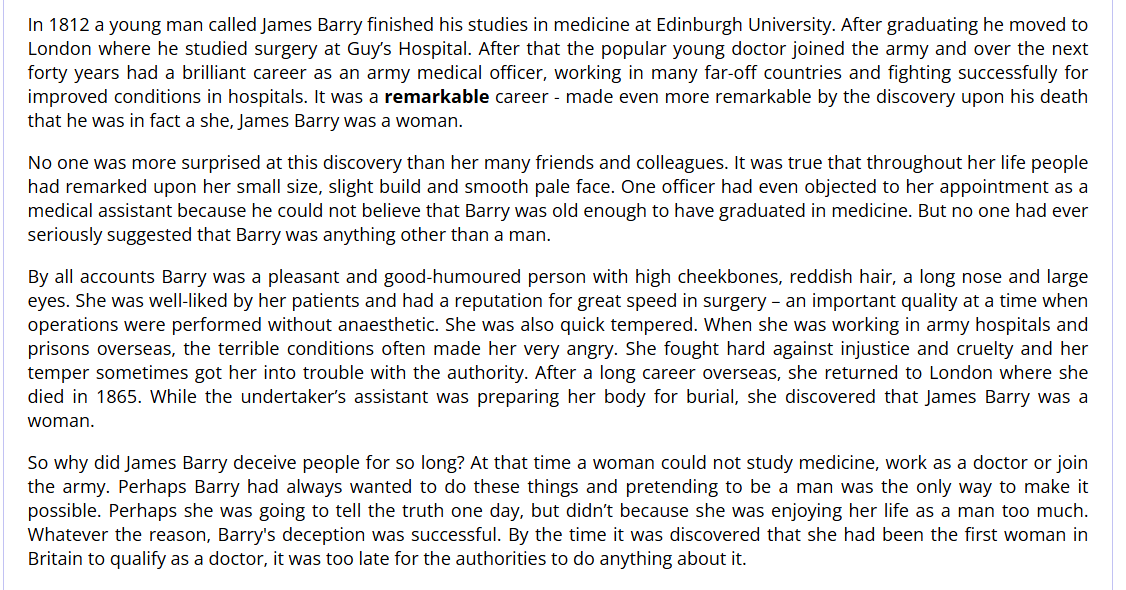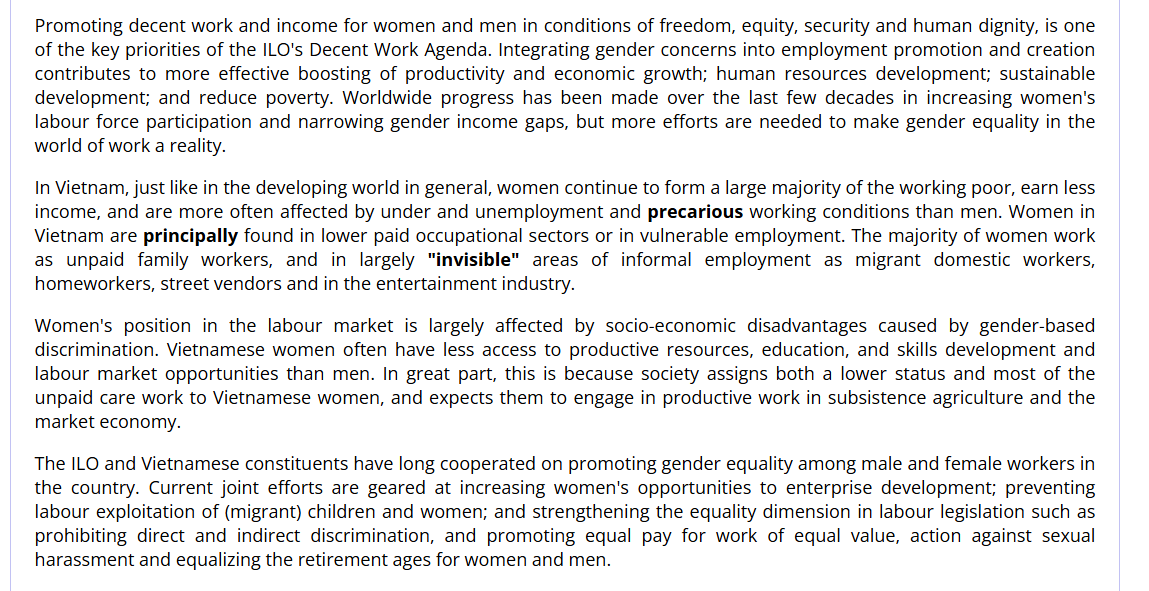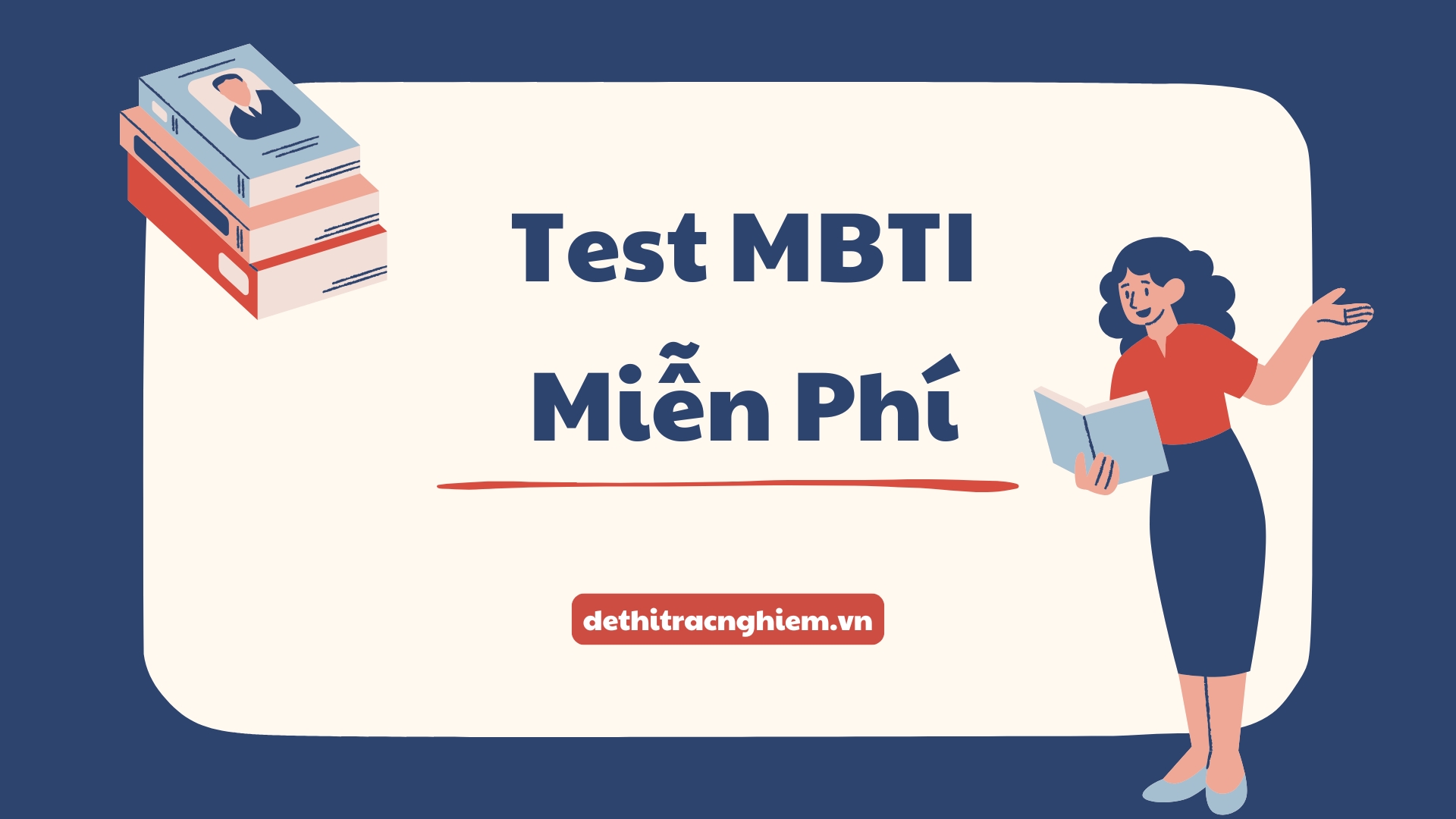Trắc nghiệm Tiếng Anh 10: Unit 6 Reading là một trong những đề thi thuộc Unit 6 – Gender Equality trong chương trình Tiếng Anh lớp 10. Đây là dạng bài đọc hiểu giúp học sinh rèn luyện khả năng phân tích và tiếp nhận thông tin từ các văn bản tiếng Anh liên quan đến bình đẳng giới – một chủ đề mang tính xã hội cao, thường xuất hiện trong các kỳ thi học kỳ và thi học sinh giỏi.
Để làm tốt bài Trắc nghiệm Tiếng Anh 10 Unit 6 Reading, học sinh cần nắm vững các từ vựng học thuật và cụm từ chuyên ngành liên quan đến vai trò giới, giáo dục, việc làm và quyền con người. Ngoài ra, kỹ năng đọc lướt (skimming) để tìm ý chính, đọc kỹ (scanning) để tìm thông tin chi tiết, và kỹ năng suy luận từ ngữ cảnh cũng là những yếu tố quyết định giúp các em trả lời đúng các dạng câu hỏi như: tìm tiêu đề đoạn văn, xác định đúng/sai, lựa chọn đáp án đúng theo nội dung bài đọc,…
Hãy cùng Dethitracnghiem.vn cùng tìm hiểu về đề thi này và tham gia làm kiểm tra ngay lập tức!
Trắc nghiệm Tiếng Anh 10 Unit 6 Reading
Câu 1:  According to the passage, what happened when British women won the right to vote for the first time?
According to the passage, what happened when British women won the right to vote for the first time?
A. The whole society change their viewpoint on the matter of feminism.
B. The matter of equality for women attracted national attention.
C. Men and women in British society gained equal rights and opportunities.
D. Women and men in British society were equal in abilities.
Câu 2:  The word ‘intense’ in the passage is closest in meaning to ____.
The word ‘intense’ in the passage is closest in meaning to ____.
A. heated
B. firm
C. light
D. lively
Câu 3:  When was the Equal Opportunities Commission established in the UK?
When was the Equal Opportunities Commission established in the UK?
A. 1960
B. 1970
C. 1975
D. 1920
Câu 4:  According to the passage, which of the following supports research for the sake of women?
According to the passage, which of the following supports research for the sake of women?
A. The Equal Pay Act
B. The Equal Opportunities Commission
C. The Sex Discrimination Act
D. The Equal Rights Amendment
Câu 5:  Which of the following is NOT true according to the passage?
Which of the following is NOT true according to the passage?
A. Women no longer have to play their traditional role.
B. Women are now paid the same as men for the same work.
C. Women are still unable to approach top jobs in industry.
D. Women can never reach high rank in public employment.
Câu 6:  What is the main idea of the passage?
What is the main idea of the passage?
A. Gender discrimination among doctors in London
B. James Barry pretended to be a man to become a doctor
C. James Barry and her career overseas
D. Punishment for James Barry’s deception
Câu 7:  In paragraph 1, the word “remarkable” is closest in meaning to ____.
In paragraph 1, the word “remarkable” is closest in meaning to ____.
A. noticeable
B. commented
C. rewarding
D. focused
Câu 8:  According to the passage, all of the following are true EXCEPT .
According to the passage, all of the following are true EXCEPT .
A. all people were surprised at the discovery
B. people remarked upon her small size
C. many people suspected that she was a woman
D. people noticed her slight build and smooth pale face
Câu 9:  In paragraph 2, the word “objected” is closest in meaning to ____.
In paragraph 2, the word “objected” is closest in meaning to ____.
A. shared
B. agreed
C. protected
D. protested
Câu 10:  According to the passage, which of the following is TRUE about James Barry?
According to the passage, which of the following is TRUE about James Barry?
A. She could control her temper perfectly.
B. She lost her temper easily.
C. She never lost her temper.
D. She was calm and well-behaved.
Câu 11:  It can be inferred from the passage that ILO stands for ____.
It can be inferred from the passage that ILO stands for ____.
A. International Law Office
B. International Labor Organization
C. Intended Learning Outcomes
D. Integrated Learning Online
Câu 12:  Which of the following is not mentioned in paragraph 1 as a result of integrating gender into employment promotion and creation?
Which of the following is not mentioned in paragraph 1 as a result of integrating gender into employment promotion and creation?
A. poverty reduction
B. human resources development
C. sustainable development
D. better employment opportunities
Câu 13:  It can be inferred from paragraph 1 that ____.
It can be inferred from paragraph 1 that ____.
A. women’s labour force participation has increased
B. gender income gaps have been narrowed
C. gender equality in the world of work has not been realized
D. promoting income for women is considered one of the key priorities
Câu 14:  The word “precarious” may mostly mean ____.
The word “precarious” may mostly mean ____.
A. ideal
B. dangerous
C. favorable
D. special
Câu 15:  The word “principally” is closest in meaning to ____.
The word “principally” is closest in meaning to ____.
A. generally
B. particularly
C. only
D. occasionally
Câu 16:  The author probably uses the phrase ‘unpaid family workers’ in paragraph 2 to refer to ____.
The author probably uses the phrase ‘unpaid family workers’ in paragraph 2 to refer to ____.
A. housewives
B. women in the family
C. the daughter of the family
D. the mother in the family
Câu 17:  The author probably uses the word “invisible” in the phrase in largely “invisible” areas of informal employment to refer to the fact that ____.
The author probably uses the word “invisible” in the phrase in largely “invisible” areas of informal employment to refer to the fact that ____.
A. many jobs done by Vietnamese women have not been officially recognized
B. the jobs done by Vietnamese women are mostly of the illegal job market
C. none of the jobs done by Vietnamese women are of high security and promotion
D. most of the jobs done by Vietnamese women are underpaid or not paid at all
Câu 18:  Which of the following is NOT true in Vietnam according to the passage?
Which of the following is NOT true in Vietnam according to the passage?
A. A large majority of the working poor in Vietnam are women.
B. Most of women work in lower paid occupational sectors than men.
C. Women have less access to labour market opportunities than men.
D. Men do not have to face with gender-based discrimination at all.
Câu 19:  According to the passage, which is the main reason why, in Vietnam, women hold lower social status than men?
According to the passage, which is the main reason why, in Vietnam, women hold lower social status than men?
A. Gender-based discrimination
B. Precarious working conditions
C. Women’s engagement in productive work
D. Increasing women’s labour force participation
Câu 20:  According to the passage, which of the following is NOT aimed at by The ILO and Vietnamese constituents?
According to the passage, which of the following is NOT aimed at by The ILO and Vietnamese constituents?
A. Increasing women’s opportunities to enterprise development
B. Prohibiting direct and indirect discrimination
C. Equalizing the retirement ages for women and men
D. Supporting women and their childbearing decisions




